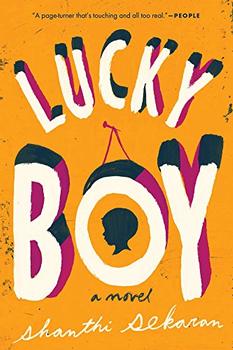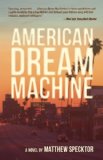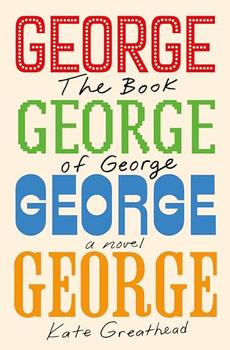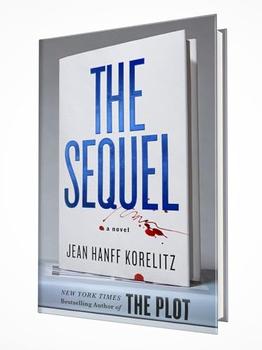Summary | Excerpt | Reading Guide | Reviews | Beyond the book | Read-Alikes | Genres & Themes | Author Bio

Michael Chabon knows how to do narrative sweep; he knows how to write an epic. The author is skilled at knitting the various elements of a story together with material borrowed from a larger setting or theme. He achieved this to spectacular effect in The Amazing Adventures of Kavalier and Clay - where the story of two teen boys growing up in 1930s New York City was set against the larger world of comic books. The dazzling novel earned Chabon a Pulitzer and many loyal fans.
Even if Chabon did produce other entertaining reads in between, it is his latest, Telegraph Avenue, that attempts to recreate the narrative sweep and large-hearted vision of Kavalier. The essential premise at the heart of this 450-page tome is pretty basic: business enterprises, no matter how noble their history, cannot survive the tidal forces of capitalism on the basis of good intentions alone. It is 2004 - Archy Stallings and Nat Jaffe are co-owners of Brokeland Records on the iconic Telegraph Avenue in Oakland (Telegraph Avenue is the famous street that bridges Oakland and Berkeley). The black Stallings and the white (Jewish) Jaffe are united in their love of vinyl and music. The store doesn't get much business but does have its share of loyal customers. The entire enterprise is on shaky footing however, when an African American ex-football player, Gibson "G Bad" Goode, decides to open a branch of his record store chain, Dogpile Thang, just down the block from Brokeland.
Archy and Nat have other problems too. Their wives, Gwen Shanks and Aviva Jaffe, are midwives, partners in a practice that well might lose its hospital privileges. Facing disciplinary action and potential lawsuits (and in Gwen's case, all while laboring through the last weeks of pregnancy), the duo's future is as uncertain as their husbands'.
While this story might seem simple enough, Chabon sprinkles it with doses of trivia from the 70s: blaxploitation movies (see Beyond the Book), and jazz, soul and funk music; as well as cult movie classics - a noticeable nod to Quentin Tarantino is included. There's also a cameo appearance by then candidate-for-senator Obama. It is these disparate nerdy elements of the story, including its allegiance to the "church of vinyl," that truly make Telegraph Avenue riveting even if the plot takes its own time unfolding.
A father of four, Chabon has often written about fatherhood and this story, too, addresses that enormous responsibility. "A father is a man who fails every day," Chabon once wrote in his essay collection, Manhood for Amateurs. The fathers in Telegraph Avenue sure meet that definition. Nat Jaffe is never quite sure what's going on with his teen son, Jules "Julie" Jaffe. Archy Stallings doesn't know he has a son until 14-year-old Titus Joyner suddenly shows up after losing his mother in a car accident. Even worse, Archy can't take him in right away - his marriage to Gwen is already on shaky ground. Even Archy's father, Luke Stallings, is no stellar father figure. Once a legendary actor in a few Blaxploitation movies, he succumbs to drugs and survives by blackmailing a local politician.
There are many funny clips in Telegraph Avenue and Chabon's writing skewers his select targets with great pleasure. He even pokes gentle fun at the food available in Oakland where "everything good was either synthesized in transgenic cyborg vats or shade-grown in small batches by a Buddhist collective of blind ex-Carmelite Wiccans."
Another message in Chabon's latest is the relevance of history to our everyday lives. Archy and Nat see history unfold before their very eyes. Brokeland Records, for example, used to be a barbershop when Archy was little and the store is now teetering on the edge of more change. Looking back even at the arc of their own store, Archy and Nat realize that "the pursuit of the past [is] a doomed attempt to run a hustle on mortality," and in doing so, are able to make peace with inevitable change. As for Brokeland Records, David might not hold out against Goliath much longer but a plan is eventually forged despite the imminent threat.
One of the many positives about Telegraph Avenue is that despite its broad sweep, and its look back at history, it succeeds in reminding us that life is worth living everyday even just for the basics: "A job. A baby. Sons, daughters, wives and lovers. Paychecks and payrolls."
With its imaginative yet controlled sprawl, many cultural references and a vibrant story, Michael Chabon's Telegraph Avenue is a sweeping fun ride. It is also most decidedly hip. As Julie Jaffe might put it, this is an "epic" epic.
![]() This review was originally published in The BookBrowse Review in September 2012, and has been updated for the
September 2013 edition.
Click here to go to this issue.
This review was originally published in The BookBrowse Review in September 2012, and has been updated for the
September 2013 edition.
Click here to go to this issue.

If you liked Telegraph Avenue, try these:

by Shanthi Sekaran
Published 2017
A gripping tale of adventure and searing reality, Lucky Boy gives voice to two mothers bound together by their love for one lucky boy.

by Matthew Specktor
Published 2014
American Dream Machine is the story of two talent agents and their three troubled boys, heirs to Hollywood royalty. It's a sweeping narrative about fathers and sons, the movie business, and the sundry sea changes that have shaped Hollywood and, by extension, American life




A classic is a book that has never finished saying what it has to say
Click Here to find out who said this, as well as discovering other famous literary quotes!
Your guide toexceptional books
BookBrowse seeks out and recommends the best in contemporary fiction and nonfiction—books that not only engage and entertain but also deepen our understanding of ourselves and the world around us.